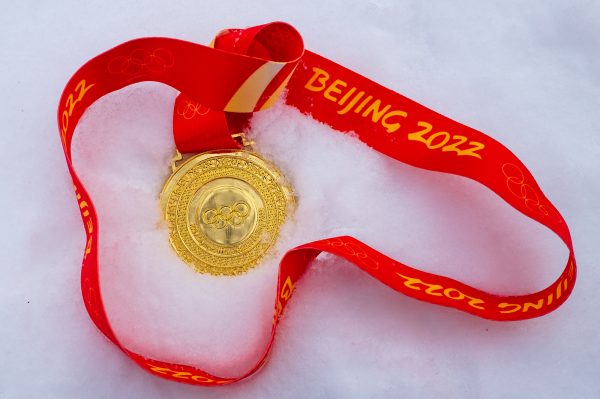China President Xi Jinping got what he wanted the most at the beginning of the new year – showcasing the Winter Olympics in Beijing as China’s answer to the global accusation of his country of spreading the Coronavirus pandemic and the subsequent condemnation from the West.
Before the end of this year, President Xi would have scored a personal victory – a third, possibly unlimited, term as the country’s head and boss of the Chinese Communist Party.
Either way, 2022 for Xi is the year of his final arrival as the torch-bearer of his country’s projection of his personal dreams across the world. The year will spark off celebrations of his first decade as China’s undisputed leader.
With so many positive moments puffing him up, the Chinese president will have to take in his stride the bitter fact that the winter games were being boycotted by a group of advanced nations led by the United States. It will also rankle him, even though he will be loath to admit, that India boycotted the Games as well because of his insensitivity in allowing a PLA soldier involved in a bloody skirmish with Indian soldiers in the June 2020 Galwan clashes as a torchbearer at the Games.
It will be long after the Games are over that the truth will come out, of how millions of ordinary Chinese citizens were put to months of misery and held in isolation so that Xi’s Olympic Bubble remains Covid-free during the period of the Games.
He will take credit two things for sure: One, creating enough artificial ice in the driest of regions where the Games are being held and two, clearing the Beijing air of all pollution particles.
The Games would do him a service in turn, ending his Covid-induced isolation that stopped him from meeting world leaders for over a year. At one go and at one venue, he would now have all the time to meet over 30 heads of state and governments, including Russian President Vladimir Putin.
The world looks to how President Xi exploits the Games to further his power projection. It is easy to narrow the choice down to what he may propose to do along with President Putin: strengthen the China-Russia axis at a time when Moscow and Washington are raising the stakes in a confrontation over the former’s designs on Ukraine.
Xi shaking hands with Putin will be a moment, therefore, that will have captured the imagination of the world much more than the opening of the Games. There is a reason why. The last time Xi declared the Olympics open in Beijing in 2008 — the Chinese capital is now the only city to host both Summer and Winter Olympics — Putin attacked Georgia. Is it Ukraine this time, asks the chorus.
The Chinese President has already done his bit for the partnership that is growing in terms of trade, technology and coordination of military exercises. Late last year, the two leaders conversed through a video call, with Xi telling Putin for both countries “to step up coordination and collaboration in international affairs” and to reject “hegemonic acts and the Cold War mentality”.
On the escalation of tension over Ukraine, Xi has sympathised with Moscow and justified the latter’s concern over Nato trying to expand its footprint along Russia’s border.
Simultaneously, Chinese Foreign Minister Wang Yi called up US Secretary State Antony Blinken calling for “Russia’s legitimate security concerns” to be taken seriously.
As the New York Times reported on Monday, “China was the only member of the United Nations Security Council to vote alongside Russia to dismiss a council meeting called by the US to discuss Russia’s military build-up at the Ukrainian border — a call that Russia said amounted to the US ‘whipping up hysteria’”.
The two authoritarian regimes will use the Beijing Games as yet another opportunity to declare their growing closeness and their shared need to make secure the 4000-odd kilometre border between them. Their shared confrontations with the United States only fuels their eagerness.
It is to be seen if this closeness will also translate into joint military coordination by the two countries as a signal to the United States. They have held joint military exercises in northern China and the first-ever joint naval patrol in the western Pacific, but these do not amount to a military alliance. They have also not been confident about openly involving themselves in each other’s conflicts with the West.
All this depends on any new sanctions the US may want to impose on Russia over the Ukraine imbroglio. For, their confrontation is not expected to go beyond that unless Putin loses his patience. That will be a different situation altogether. Any such sanctions will make Russia dependent on China, something the latter would not object to, friendship or no friendship.
Eventually, President Xi may end up realising that at the end of the day, he would have only triggered, along with the Winter Olympics in Beijing, the get-together of a unique set of world leaders share traits of authoritarianism and political expediency and disrespect for human rights and democratic freedoms.
As the western media has already noted, the presence of attendance of Putin along with Saudi Arabia’s Mohammed bin Salman, Egypt’s Abdel Fattah Al-Sisi and others, “will send out an image not just of China’s increasing distance from the West, but of an emerging bloc of Beijing-friendly authoritarian leaders”.

Leave a Reply